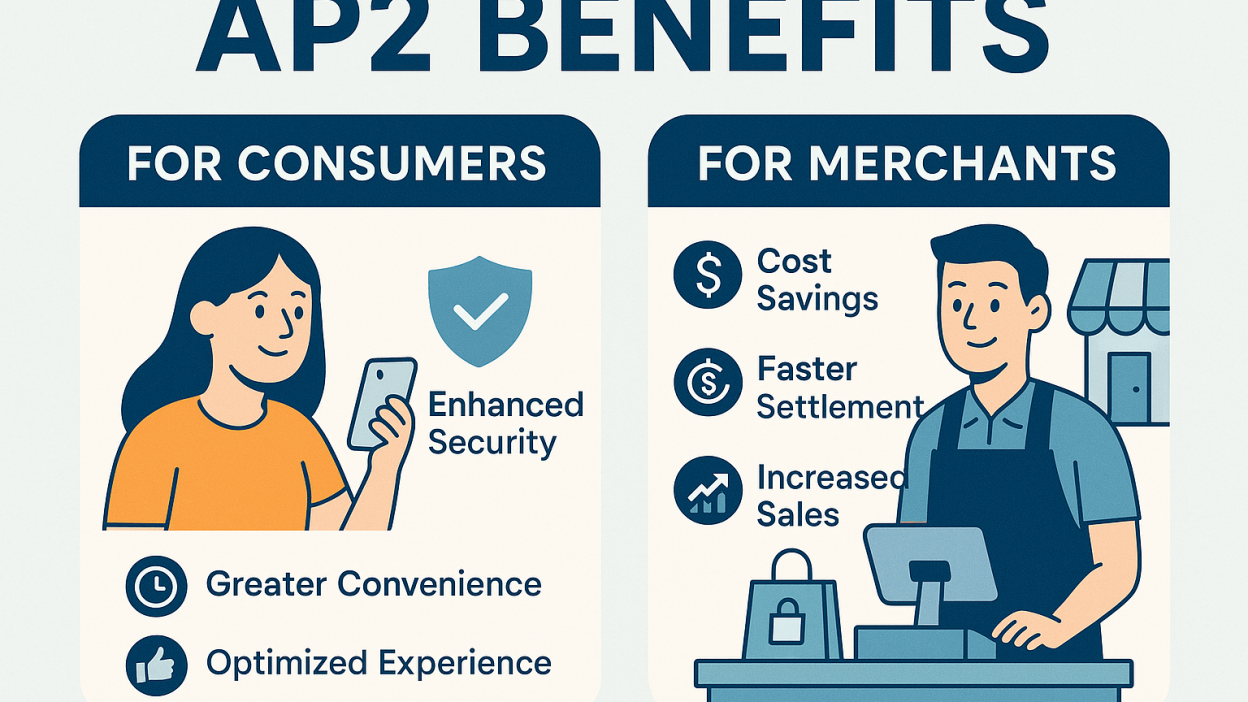Google Introduces Innovative Protocol to Enable Agent-Driven Purchases
Google has unveiled the Agent Payments Protocol (AP2), a new open standard designed to facilitate secure, traceable, and interoperable transactions initiated by AI agents on behalf of users. This development marks a significant milestone in the evolution of commerce, where artificial intelligence not only assists but actively engages in purchasing decisions, reflecting a profound shift in consumer behavior and retail dynamics.
The relevance of AP2 extends beyond its technical specifications; it addresses the growing demand for seamless integration between AI systems and payment infrastructures. As AI agents become more prevalent in managing personal tasks, from scheduling to shopping, ensuring that these agents can transact securely and transparently is paramount. AP2 provides a framework that ensures AI-driven purchases are executed with the same level of accountability and trust as traditional human-initiated transactions.
From a societal perspective, this advancement underscores the increasing reliance on AI in daily life and the corresponding need for robust systems that govern these interactions. The introduction of AP2 is not merely a technological upgrade; it is a reflection of how commerce is adapting to the digital age, where the lines between human and machine-driven decisions are increasingly blurred.
Understanding the Agent Payments Protocol (AP2)
The Agent Payments Protocol (AP2) is an open standard developed by Google to enable secure transactions initiated by AI agents. Unlike traditional payment systems that rely solely on human input, AP2 allows AI agents to make purchases on behalf of users, ensuring that these transactions are secure, traceable, and compliant with existing financial regulations.
At its core, AP2 integrates with existing payment infrastructures, providing a seamless bridge between AI systems and financial institutions. This integration ensures that transactions initiated by AI agents are processed efficiently and securely, without the need for manual intervention.
The Role of AI Agents in Modern Commerce
AI agents are increasingly becoming integral to modern commerce, assisting users in making informed purchasing decisions, managing subscriptions, and even negotiating prices. These agents leverage machine learning algorithms to understand user preferences and behaviors, enabling them to make personalized recommendations and execute transactions autonomously.
The rise of AI agents in commerce reflects a broader trend towards automation and personalization in the retail industry. Consumers are increasingly seeking convenience and efficiency, and AI agents provide a means to meet these demands by automating routine tasks and delivering tailored shopping experiences.
Interoperability and Collaboration with Industry Partners
One of the key features of AP2 is its emphasis on interoperability. Google has collaborated with over 60 merchants and financial institutions to ensure that the protocol is compatible across various platforms and payment systems. This collaborative approach ensures that AI-driven transactions can occur seamlessly across different ecosystems, enhancing the overall user experience.
Industry partners such as Mastercard, PayPal, and Alibaba have expressed support for AP2, recognizing its potential to revolutionize the way transactions are conducted in the digital age. Their involvement underscores the importance of creating open standards that facilitate collaboration and innovation in the financial sector.
Enhancing Trust and Transparency in AI-Driven Transactions
Trust and transparency are critical components of any financial transaction. AP2 addresses these concerns by providing a traceable paper trail for every transaction initiated by AI agents. This feature ensures that users can verify the authenticity of transactions and hold AI agents accountable for their actions.
Moreover, AP2 incorporates mechanisms to capture and verify user intent, ensuring that AI agents act in accordance with user instructions. This focus on accountability is essential in building consumer confidence in AI-driven commerce and ensuring that these technologies are used responsibly.
Societal Implications and Future Outlook
The introduction of AP2 signifies a shift towards a more automated and AI-driven economy. As AI agents take on more responsibilities in managing personal tasks, including financial transactions, there is a growing need for systems that govern these interactions and ensure their integrity.
The widespread adoption of AP2 could lead to significant changes in consumer behavior, with individuals increasingly relying on AI agents to manage their purchasing decisions. This shift could have profound implications for retailers, financial institutions, and policymakers, necessitating the development of new frameworks to address the challenges and opportunities presented by AI-driven commerce.
Google’s introduction of the Agent Payments Protocol (AP2) represents a significant advancement in the integration of artificial intelligence into commerce. By enabling secure, traceable, and interoperable transactions initiated by AI agents, AP2 lays the groundwork for a future where AI plays an active role in economic activities.
This development not only enhances the efficiency and convenience of online shopping but also raises important questions about trust, accountability, and the evolving role of AI in society. As AI agents become more prevalent in managing personal and financial tasks, systems like AP2 will be crucial in ensuring that these technologies are used responsibly and transparently.
Looking ahead, the success of AP2 could pave the way for broader adoption of AI-driven commerce, transforming the retail landscape and redefining the relationship between consumers, merchants, and technology. The ongoing collaboration between industry partners and the open development of standards like AP2 will be essential in shaping a future where AI and commerce coexist harmoniously.
FAQs:
-
What is the Agent Payments Protocol (AP2)?
-
AP2 is an open standard developed by Google to enable secure and traceable transactions initiated by AI agents on behalf of users.
-
-
How does AP2 enhance security in AI-driven transactions?
-
AP2 integrates with existing payment infrastructures and provides mechanisms to capture and verify user intent, ensuring that AI agents act in accordance with user instructions.
-
-
Who are the partners supporting AP2?
-
Over 60 merchants and financial institutions, including Mastercard, PayPal, and Alibaba, have expressed support for AP2.
-
-
What role do AI agents play in modern commerce?
-
AI agents assist users in making informed purchasing decisions, managing subscriptions, and executing transactions autonomously, enhancing convenience and personalization in shopping experiences.
-
-
What are the societal implications of AP2?
-
The introduction of AP2 signifies a shift towards a more automated and AI-driven economy, raising questions about trust, accountability, and the evolving role of AI in society.
-
Stay informed about the latest developments in AI-driven commerce and the Agent Payments Protocol by subscribing to our newsletter. Receive expert insights, updates, and analyses directly in your inbox.
Note: Logos and brand names are the property of their respective owners. This image is for illustrative purposes only and does not imply endorsement by the mentioned companies.



